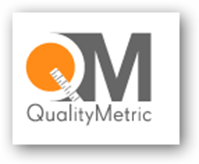There’s money in those algorithms or intellectual property as it is generally called. This patent is for the algorithms that health plans and providers can use to assess health status, using data given by the patients themselves. Ingenix bought the company back about this time last year. 
Ingenix (Subsidiary of United Health Care) Buys QualityMetric – More Algorithmic Formulas To Choose From To Identify Future Risk and Cost
Dynamic Health Assessments is the name of the program and is to be sued to show a wealth of data about a patient's own assessment. Input is “scored” (just like is done with claims information) and compared across a large number of areas and patient numbers. Now it sounds like since they also have a patent, we have another bunch of algorithms to sell and make money with as well as nobody gets a patent these days unless it drives profit and money, otherwise everyone would share the wealth of analytics. 
This is still yet one more set of formulas rolled into predictive behavior analytics so they can can crunch data and see “how patients experience changes in their health status”, in other words it appears to be able to put together large groups and run your information and compare to see if you are in the same groove and ultimately not costing more money. So if you are a patient and asked for survey information, chances are this is where it may go for more analytic predictions.
There’s a real bounty out there for this stuff besides just getting a money making patent as discussed above. One healthcare network in California has hung a 3 million dollar bounty out there for algorithmic formulas that can predict who will be re-admitted to the hospital. BD
Heritage Providers Continues to Promote $3 Million Dollar Prize to Create An Algorithm To Predict and Prevent Hospitalizations
LINCOLN, R.I., March 14, 2011 /PRNewswire/ -- Two senior scientists at QualityMetric Incorporated, part of Ingenix Life Sciences, were named inventors on the recently issued U.S. Patent No. 7,765,113, for their innovative work using computerized adaptive testing (CAT) technology to improve health surveys.
These surveys, pioneered by Mark Kosinski, MA and Jakob Bjorner, MD, PhD and others, help health plans and care providers assess functional health status as reported by patients themselves, known as patient-reported outcomes.
"Dynamic Health Assessments, or DYNHA®, yield a wealth of data about an individual's own assessment of his or her well-being," said Kosinski, vice president and senior scientist at QualityMetric. "This information can be used to monitor and compare health outcomes for individual patients as well as across large populations, enabling health plans and care providers to measure how patients experience changes in their health status, daily functioning and other measures as a result of the care they receive."



0 comments :
Post a Comment